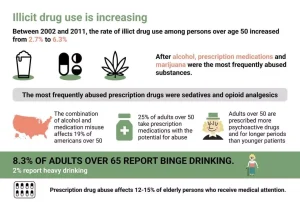
Fights are, ultimately, about expressing our position in ways that may convince the other person that they’re wrong. How parents and caregivers react when a child expresses their thoughts and feelings can have a great impact on the child’s wellbeing. If a child is controlled, engulfed, or dismissed in their family environment, they may develop conflict-avoidant and secretive behaviors and thoughts to maintain a sense of safety and security. Conflict how to deal with someone who avoids conflict is defined as a clash between individuals arising out of a difference in thought process, attitudes, understanding, interests, requirements, and even sometimes perceptions. A conflict results in heated arguments, physical abuses, and definitely loss of peace and harmony. The Calm app puts the tools to feel better in your back pocket, with personalized content to manage stress and anxiety, get better sleep, and feel more present in your life.
- When you are in a romantic relationship, you likely want to feel comfortable speaking openly and honestly with your partner.
- Interestingly, this phrase doesn’t necessarily mean the speaker agrees with the other person’s point of view.
tips for overcoming conflict avoidance
Sometimes avoiding conflict is a good idea; if somebody is being irrational, prone to violence, or just needs to be calmed down rather than met with assertive responses, it’s a good and diplomatic idea. But you have rights, and if you’ve let them slip rather than go for a confrontation, you’re avoiding conflict and costing yourself things in the process. And no, complaining to other people doesn’t count as helping a conflict resolve itself. Gunnysacking is intimately related to conflict avoidance, because it’s what happens when you don’t resolve things as you go along, and just hold onto them instead. It can also reinforce conflict-avoidant behavior, because, after the flood of misery dumps, you may feel wretched and irrational, and resolve to “be more peaceful” in the future.

Mental health advice & news delivered to your email
- Second, a partner who is egocentric may wish to dodge a person’s disapproval; he or she hides selfish acts and avoids conversations focused on issues in the relationship.
- When we avoid conflict with those we continue to interact with, we allow it to fester and grow.
- It has a focus on the therapeutic relationship between therapist and client, and a goal of improving daily functioning and gaining insight for change based on understanding and re-engineering of early life experiences.
- A trusted friend or counselor might help you view the conflict more fully and determine the best way to manage it.
- Circumventing power struggles by calmly and assertively identifying three or four critical boundaries helps a person determine the partner’s ability to be respectful.
- Many people find themselves saddled with a partner who cannot perspective-take.
Next time you catch yourself or others using these phrases, consider it an opportunity to engage more openly and courageously in the dialogue that follows. It’s like when you’re arguing about who left the dishes in the sink, while the real problem might be a general lack of communication or sharing of responsibilities. By requesting a moment to process, you’re not only buying yourself some time to calm down and consider your response. When tensions are high, acknowledging someone’s feelings can be a powerful tool for easing the situation. Interestingly, this phrase doesn’t necessarily mean the speaker agrees with the other person’s point of view. According to psychology, this approach can be beneficial in certain settings where preserving the relationship is more important than winning a particular argument.

Conflict Avoidance In Relationships: Causes, Consequences, and Coping Tips
Just because you value keeping things the same, however, doesn’t mean you’re totally fixed in your opinions. Your friends might value your flexibility; you find it easy to see both sides of a disagreement, but you’d rather not voice your personal view on any given matter, should it sway heavily in one direction or another. You may need to give yourself some extra pep talks before you say you reaaally want to order pizza for your https://ecosoberhouse.com/ birthday, knowing it’s not your girlfriend’s favorite. “Avoiding conflict can be well-intentioned, and you can learn how to help it grow and shift if that is what you desire,” Morales tells Bustle. Practicing having confidence in yourself — and affirming that your needs matter — can be a big part of your fight, freeze, or Amy Santiago journey. Strategies can include engaging in deep breathing techniques before the confrontation.

How do childhood experiences influence attachment styles?
We’re culturally expected to couch any self-expression within apology, humility, and gentleness. Being assertive is not part of our set of cultural weapons, but it damn well should be. If you avoid conflict because, on some level, you believe it’s not ladylike to get involved in deep, dirty fights, you may be doing yourself a serious disservice. Serial conflict-avoiders will have a series of unconscious manoeuvres to get out of fight situations. But if things start to look like conflict, your immediate reaction is to either get out of the situation or somehow change it so that it’s more peaceful, rather than seeing the fight through. Here’s more about what that means as well as how you can learn to cope more effectively.

